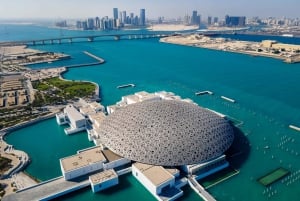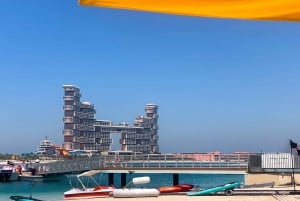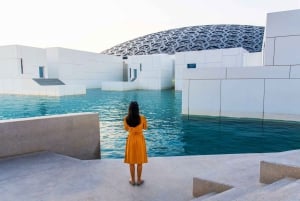Abu Dhabi Climate and Time
Climate in Abu Dhabi
Abu Dhabi has a sub-tropical, dry climate. Sunny blue skies and high temperatures can be expected most of the year. Rainfall is infrequent, falling mainly in winter (from November to March) at an average of 12cms per year in most of the emirate. Rain is more prevalent in Al Ain, due to its closeness to the Hajar mountains. Temperatures vary from a low of around 13°C in winter nights, to a high of around 42°C in summer days. Humidity usually falls between 50% and 65%. Sometimes, in combination with high summer temperatures, it can even go up to 60% humidity. Click here to know more about today's weather in Abu Dhabi and future weather forecast.
Though the cooler months, from November to April, are the most pleasant time to visit, when temperatures are around 24°C during the day and 13°C at night, Abu Dhabi is considered as an with seasonal activities and attractions to suit every taste and interest of travelers. Throughout the year, travelers can enjoy a range of cultural activities and fantastic shopping. Summer season is ideal for relaxing on the Abu Dhabi’s white sandy beaches and milder weather in the winter months provides the ideal climate for desert adventures, dune bashing and desert safaris. The lush green oases of Liwa and Al Ain are cooler year round and became popular destinations providing a backdrop to some of the largest sand dunes in the world with its massive expanses of untouched deserts.
Time in Abu Dhabi
Abu Dhabi time is four hours ahead of UTC (Co-ordinated Universal Time - GMT). Clocks are not altered for daylight saving in the summer. So, when Europe and North America gain an hour, the time in Abu Dhabi stays the same. During this period the time difference is one hour less, so when Abu Dhabi time is 12.00, it is 09.00 in the U.K instead of 08.00 as it is during the winter.











